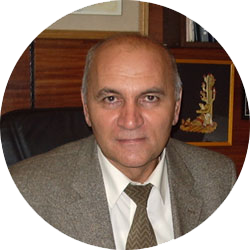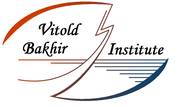The technology of electrochemical activation (ECA) is one of the scientific and technical areas of applied electrochemistry, officially recognized by the USSR Higher Attestation Commission in 1986. The essence of ECA technology is electrochemical synthesis and subsequent use of electrochemically activated (metastable) substances in various technological processes instead of traditional chemical reagents. The main working tool of this technology is a diaphragm electrochemical reactor. Universal flow-through electrochemical modular reactors with a ceramic ultrafiltration diaphragm – MB elements (Bakhir Modules) patented in many countries – have been created, developed and mass-produced in Russia. Between 1991 and 2021, more than two and a half million original MB elements were manufactured.
In the period 1991 – 2010, more than 60,000 STEL-type electrochemical devices were produced in Russia for the synthesis of an environmentally friendly highly effective washing, disinfecting and sterilizing solution – Anolyte ANK from water with a small addition of table salt (less than 5 grams per liter). Medical clinics in Moscow, St. Petersburg, in many cities of Russia and foreign countries still use these devices, although they were replaced in 2016 by the Vitold Bakhir Institute of Electrochemical Systems and Technologies register of profile products Anolyte ANK SUPER, which is actually fresh water (total mineralization less than 0.9 g/l). The active substances in Anolyte ANK SUPER are represented by a mixture of oxidants produced by human phagocytes and any organisms that have an immune system – hydrogen peroxide, hypochlorous acid, ozone and singlet oxygen. This solution is odorless, non-corrosive, certified for the destruction of pathogens of especially dangerous infections, and also as a medical product. Does not allow microorganisms to develop resistance, does not leave marks on smooth surfaces when evaporating. STEL-ANK-SUPER units with a capacity of 250 to 1000 liters per hour are currently operating in several medical, pharmaceutical and some other enterprises in Russia. Anolyte ANK SUPER (the cost of 1 liter is 0.1 ruble) is able to replace up to 90 percent of foreign chemicals for disinfection in medicine, the food industry, agribusiness, housing and communal services and other areas.
Modular devices AQUACHLOR and ECOCHLOR, developed in Russia, make it possible to synthesize gaseous chlorine and a concentrated solution of caustic soda from salt and water. The synthesis technology is unique and is based on the use of reactors equipped with MB electrochemical modules. AQUACHLOR devices with a capacity of 500 grams of chlorine per hour in the form of an oxidant solution (analogous to chlorine water) were delivered to various cities of Russia and foreign countries in the period 2003-2015. In particular, since 2005, several dozen AQUACHLOR units have been operating in the city of Balakovo, ensuring the disinfection of all city drinking water. In the city of Krasnoarmeysk near Moscow, one AQUACHLOR unit disinfects 10,000 cubic meters of city wastewater per day. ECOCHLOR units, which produce only gaseous chlorine, are used at a number of metallurgical and chemical enterprises in the processes of manufacturing platinum catalysts, leaching precious metals and rare earth elements, and treating radioactive wastewater. A new generation of AQUACHLOR and ECOCHLOR modular systems with a unit capacity of 1.5 – 5.0 kilograms of chlorine per hour will make it possible to abandon the existing centralized scheme for the production of liquid chlorine at chlorine plants, canceling as unnecessary all aspects of transportation and storage of liquid chlorine at enterprises. Rostekhnadzor, as well as the German certification bureau TUV, have recognized AQUACHLOR and ECOCHLOR units as safe systems. Chlorine in any technology is used in a gaseous state, so the presence of the required number of modular units will ensure the needs of any enterprise in absolutely safe chlorine. The organization of large-scale production of AQUACHLOR and ECOCHLOR systems in Russia will make it possible to eliminate the costs of technical and technological maintenance of Russian chlorine plants by foreign companies – manufacturers of membrane electrolyzers and Nafion membranes.
Thanks to the unique design, physico-chemical and technological features of the MB elements, the EMERALD water purification and conditioning units are a reliable and trouble-free source of clean drinking water from any fresh water source – surface or underground. In the period from 1991 to 2015, more than 300,000 EMERALD household units with a capacity of 50-60 liters per hour were produced in Russia.
In 2016, a fundamentally new technology for electrochemical water purification was implemented, which made it possible to increase the productivity of a single unit up to 10,000 liters per hour and at the same time improve the quality of water purification.
Compactness, low power consumption (20 – 30 watts per 1 cubic meter of treated water), high performance will significantly facilitate and improve the living conditions of people in small towns and villages, provide clean and disinfected water to individual enterprises, provide water to the population during emergency situations, without resorting to the transportation of clean water and containers with liquid chlorine, which are used to disinfect water during emergencies.








